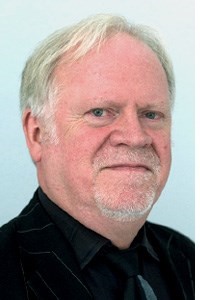16.11.16
STPs - Collaboration makes sense, but it needs leadership and direction
 John Coutts, policy advisor – governance at NHS Providers, looks at the the lack of governance and accountability of the STPs and why this presents a serious risk to the process.
John Coutts, policy advisor – governance at NHS Providers, looks at the the lack of governance and accountability of the STPs and why this presents a serious risk to the process.
Just as many decisions are best made locally, a good few are better made at regional or local health economy level. And if we are making decisions at this level then it is best that they are taken by the organisations that make up that health economy, those with a stake in the game. Without that level of interaction it will be difficult to realise the financial and quality gains implicit in delivering new models of care. It will also make the delivery of economies of scale necessary to bring NHS expenditure into line with budgets even more challenging.
So my starting point is that STPs are, for the most part, a good thing and are probably a necessary next step in the development of the NHS.
The thorny issues of leadership, direction and governance
Of course, there are practical problems. For instance, some STP areas not corresponding with other ‘footprints’ on things like patient flows, and on new care model projects spanning several STP areas. None of these are insurmountable, but there are also more thorny issues of leadership and direction, and dare I say of governance, that if ignored are likely to lead to fundamental problems.
First and foremost, we need to take account of the fact that STPs have no legal status. They are not unlawful, but they have no standing in law and no legitimacy other than that which the participants bring with them. This means that in making decisions they need to be mindful of where they derive their authority to act. There are difficulties around direction and control because the process of leading STPs is unwieldy. They cannot delegate and involve meetings of representatives of all participants, which is likely to mean cumbersome groupings.
Secondly, decision-making processes warrant significant attention if they are to deliver good outcomes. STPs have no legal powers and decisions can only be made in accordance with the delegations allowed to the chief executives that make up the STP leadership. The only way to make those decisions binding is through contracts between the participants, but putting contracts in place will be time-consuming, comes with a cost and is therefore not practicable in most cases. So participants will need to rely on trust that partners will not renege on agreements, but also accept that circumstances will change and that there will sometimes be legitimate grounds to reopen negotiations.
Thirdly, there has been little non-executive input into STPs to date, so there are likely to be cases across the country where decisions are not being challenged and tested properly. If that is the case then there will be problems with risk management, because the absence of strong challenge leads to weak risk control and a greater likelihood of risk coming to fruition. There will be a challenge for STPs in developing a common, robust risk culture.
Fourthly, to date the conduct of business has been carried out largely in private and their plans have been confidential. This raises important questions around engagement, and could prove detrimental if CCGs, councils of governors and local authorities opt to halt plans in their tracks in part because they have not had the chance to understand and gain ownership of the business case for change. Similarly, there is a need to ensure timely and appropriate public engagement prior to formal consultation. Sooner rather than later, there will be a need for much greater transparency if implementation is to be as uncontroversial as possible and we have already seen four councils publish STPs and criticise the NHS for not being more transparent.
Finally, with the drive from the centre to get things done, the lack of non-executive challenge, cautiousness over sharing early thinking more widely across local partners or the public, the homogeneity of the group and the pressure of not to be the one standing out against an agreement STPs represent an almost perfect storm for ‘group think’. The possibility of group think, where talented people make decisions that they believe to be right, but are in fact wrong, is well known, but often ignored. The difference here is that in knowing this is a risk, we can do something about it.
None of the issues identified above constitutes an insurmountable problem. It is true that some of them might be better solved by legislation – the issue of legitimacy for example. But all of them can be addressed and dealt with, however imperfectly, within existing flexibilities and by applying the principles of good governance.
Have you got a story to tell? Would you like to become an NHE columnist? If so, click here.